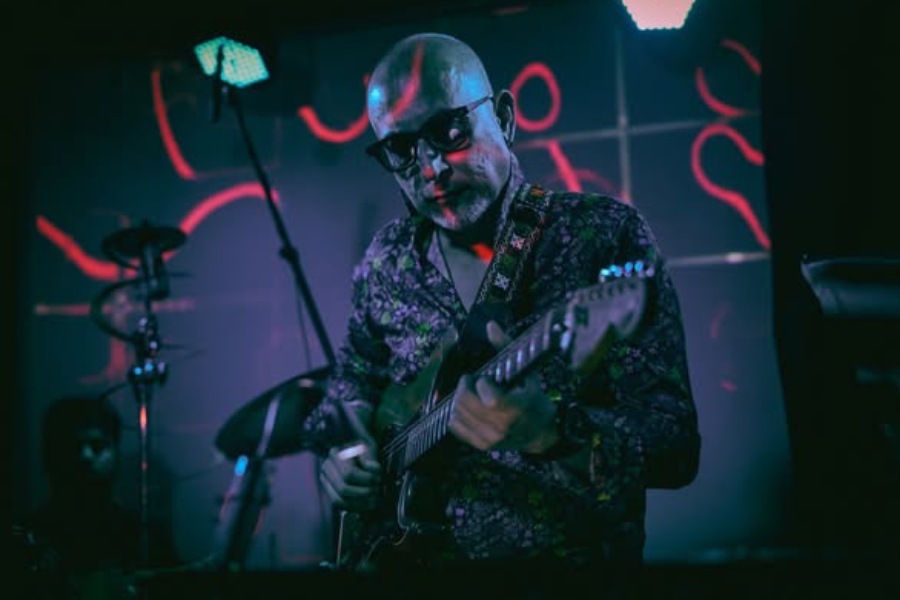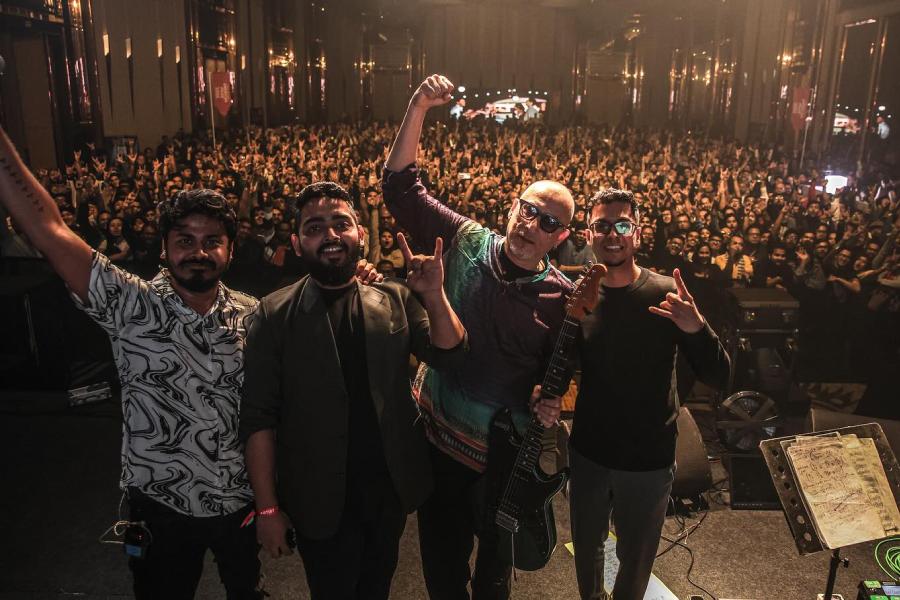Amyt Datta is the reason why if you throw a stone in Kolkata it might land on a guitar player.
The 64-year-old has been the city’s six-string god for a long while now. He was a rock star – playing and touring with the band Shiva in the 1980s – before most of India knew what a rock star was. He has been teaching guitar for decades and played at almost every major venue in the country.
For the last several years, he has been writing music that he believes in – rooted in the harmonic complexity of jazz and the don’t-care attitude of rock. Jazz-fusion at its daring best.
And now, he is ready to share it with India as he embarks on a four-city tour with his Electric Power Quartet. The band includes Aakash Ganguly on bass, Sambit Chatterjee on drums and Samrat Mukherjee on keyboards.
They will be playing at Fandom at Gilly's Redefined in Bangalore on 22 May, High Spirits, Pune on 23 May, the Nita and Mukesh Ambani Cultural Centre in Mumbai on 24th and 25th at the Piano Man New Delhi (Eldeco Centre).
“See, in India, there’s almost no support for this kind of music. There are countless reasons why that’s the case,” Amyt Datta said when asked why it took him so long to go on a tour with his own music.
“To begin with, this music doesn’t bring in the kind of commercial returns that Bollywood does. So, while many young students and musicians may dream of pursuing it, when faced with reality, they often change course. And even if they stick to it, it's rarely sustainable.
“This scene hasn’t been supported by the mainstream ecosystem,” he said, “As a result, everything becomes fragmented and dependent on individual efforts.”

Performing live is the most exciting part for Datta. ‘That’s where I feel most alive.’
The same situation exists in Mumbai and Delhi, he said.
“We, as musicians, are focussed on writing and performing music — organising events isn’t really our job. We've tried to build our art to the best of our abilities and hoped that opportunities would follow.”
The idea of the tour was born when Datta got a gig at the Nita Mukesh Ambani Cultural Centre.
“This will be our second time playing there. So, we thought, if we’re already going to Mumbai, why not reach out to others and put together a small tour? Even though the commercial side wasn’t too promising, we decided to go ahead anyway,” he said.
“We're calling it the Electric India Tour, because my album is titled Electric.”
At this point in his life, does performing for new audiences still excite Amyt Datta? “More than ever,” he said. “At this age, you discover the deeper beauty in this art form called music. It’s exciting every single day. When you’re young, you’re just scratching the surface — you’re still a novice, and even the basics feel thrilling. Later, as you go deeper, it becomes harder to find something truly new. But when you do, it’s magical. If you put in the effort, there are endless things to discover, and that keeps me inspired, whether I'm composing, writing, or working with the band.”
Performing live is “the most exciting part,” for him. “That’s where I feel most alive.”
What are his thoughts on the threat of AI?
“To be honest, even before AI, it was humans who did the damage. We’ve been plagiarising — copying left, right, and centre — and now we’re blaming it all on AI,” he said.
“The problem lies not in the tool, but in how it’s used. Like with any powerful technology, it depends on the intent.”
Why isn’t Kolkata on the tour list?
“Our drummer [Sambit Chatterjee, son of tabla exponent Subhen Chatterjee] splits his time between Mumbai and Kolkata, so gigs here are slightly more within our control. But they’re usually on a small scale — just little clubs. It’s not like the old days when you could fill up a Kalamandir with just a band,” he said.
The support, the funding, just doesn’t exist in Kolkata, he said.
“This idea of Kolkata being the City of Joy is more of a myth, at least for artistes like us. There’s some support, but it’s negligible. I don’t mean to sound pessimistic — I’m just describing the reality,” he said.
What does he think of the creative music scene in Kolkata and the country?
“There are young musicians in Kolkata, and even though the number is small, more girls are getting involved, which is great to see. But for survival, most of them end up joining the Bollywood scene. Their excuse is that they need to earn a living, which is fair. But when it comes to real art, it's uncompromising. You can’t fake it,” he said.
“I’m lucky to have stayed true to what I believe in, to not have had to compromise. But not everyone has that luxury. Still, the creativity is there. Many are going abroad to study music and returning with new ideas. But ultimately, many still end up playing Bollywood songs. And this isn’t a new problem — it’s been this way for 20 years.
“Bengal has never been commercially successful. Without a functioning commercial ecosystem, everything suffers. And here, music and art are still seen as mere entertainment, not a serious pursuit. That mindset pushes it way down the priority list,” he said.
